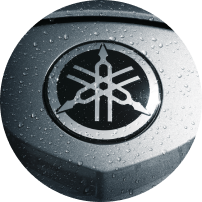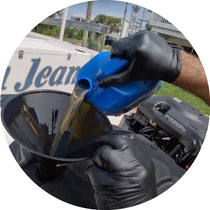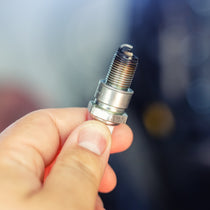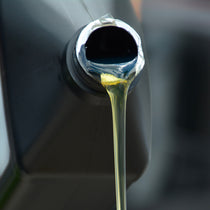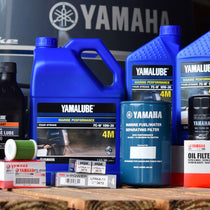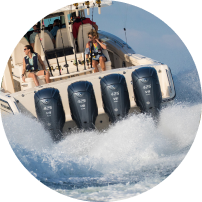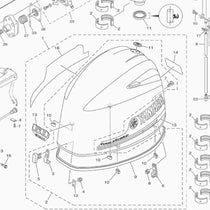Ensuring your Yamaha outboard motor runs smoothly and efficiently requires high-quality components. One of the most critical components is the fuel-water separating filter. A good filter removes water and contaminants from your fuel system, safeguarding your engine's performance and longevity.
Understanding Fuel-Water Separator Filters
What Does a Fuel-Water Separating Filter Do?
A fuel-water separating filter serves the dual purpose of removing water and particulate matter from the fuel before reaching the engine. Water can enter the fuel system from condensation, contaminated fuel sources, or improper storage. The filter uses a specialized media that captures water droplets and particles, allowing only clean, dry fuel to pass through. This process is crucial for maintaining the integrity of your engine's fuel system. The filter helps prevent corrosion, wear, and potential engine failure by ensuring the fuel is free from contaminants and water.
Why Do I Need a Properly Maintained Fuel-Water Filter?
Contaminated fuel can lead to several issues:
- Engine Damage: Water and debris in the fuel can cause corrosion of metal components and wear on moving parts, leading to costly repairs. For instance, water can cause rust inside the fuel system, which can then spread to injectors and other sensitive parts.
- Reduced Performance: Contaminants can restrict fuel flow, causing poor Yamaha outboard engine performance and efficiency. When the engine doesn't get enough clean fuel, it can misfire, run rough, or even stall, reducing your boat's overall performance.
- Increased Maintenance Costs: Frequent repairs and replacements due to contaminated fuel can drive up maintenance expenses. Replacing parts damaged by poor fuel can be expensive and time-consuming, leading to more frequent visits to the mechanic.
- Fuel System Blockages: Accumulated debris can clog fuel lines, injectors, and carburetors. These blockages can prevent the engine from starting or cause it to run poorly, making your boating experience frustrating and potentially dangerous.
A fuel-water separator filter prevents these problems, ensuring your engine remains in peak condition.
Key Features of a Quality Yamaha Outboard Fuel-Water Separating Filter
Filtration Efficiency
A high-quality filter for your Yamaha outboard removes water and particulate matter from the fuel, typically capturing contaminants as small as 10 microns. Efficient filtration is crucial because even tiny particles can cause significant damage to your engine over time. Filters with advanced filtration media provide superior performance, ensuring the fuel is as clean as possible.
Durability
Quality fuel filters are made to withstand harsh marine environments, including exposure to saltwater, UV rays, and varying temperatures. Durable filters are constructed from robust materials that endure physical stress and corrosion. This longevity is essential for maintaining consistent performance, especially in environments where the filter is exposed to challenging conditions.
Flow Rate
A quality filter maintains adequate fuel flow to the engine, ensuring it receives the fuel it needs without restriction. An optimal flow rate is crucial for Yamaha outboard’s performance; if the filter restricts fuel flow too much, the engine may not receive enough fuel, leading to performance issues or even engine damage. High-quality filters are designed to balance filtration efficiency while maintaining sufficient flow rates.
Ease of Maintenance
Quality Yamaha outboard fuel-water filters come with clear instructions and are easy to replace, minimizing downtime and maintenance hassles. Many high-quality filters feature user-friendly designs, such as spin-on canisters or quick-release mechanisms, which simplify the replacement process. Easy maintenance encourages regular filter changes, ensuring your engine always has the clean fuel it needs.
Yamaha Outboard Fuel-Water Separating Filter Construction and Materials
Housing
The housing should be made from corrosion-resistant stainless steel or anodized aluminum. These materials are chosen for their ability to resist rust and corrosion, even when exposed to saltwater and harsh environmental conditions. A sturdy housing protects the internal filter media from damage and ensures the filter can withstand the rigors of marine use.
Filter Media
High-efficiency synthetic or cellulose media that can trap small particles and water are essential for effective filtration. Synthetic media are often preferred for their superior durability and filtration capabilities. Multi-layered media can provide graduated filtration, with each layer capturing different sizes of contaminants, ensuring comprehensive cleaning of the fuel.
Seals and O-Rings
Seals and O-rings should be high-quality rubber or silicone that resists degradation from fuel and environmental factors. High-quality seals are crucial for preventing leaks and ensuring the filter maintains a tight seal within the fuel system. Degraded or poorly fitting seals can allow contaminants to bypass the filter, negating its effectiveness.
Problems from Poor Quality Filters
Engine Damage
Contaminants and water in the fuel can cause corrosion, wear, and damage to engine components. For example, water can cause rust in metal parts, and particles can cause abrasion, leading to wear on injectors, pumps, and other components. Over time, this damage can result in expensive repairs or even engine failure.
Reduced Performance
Blocked or restricted fuel flow can lead to poor Yamaha outboard motor performance, including reduced power and efficiency. An engine that doesn't receive a steady flow of clean fuel can run poorly, hesitate, or stall, making it difficult to operate your boat reliably and safely. Poor performance can also increase fuel consumption, making boating trips more expensive.
Increased Maintenance Costs
Poor filtration can result in more frequent repairs and replacements, increasing maintenance expenses. Repairing damage caused by contaminated fuel can be costly, and frequent filter replacements can add up. Investing in a high-quality filter can save you money in the long run by reducing the frequency and severity of maintenance issues.
Fuel System Blockages
Accumulated debris can clog fuel lines, injectors, and carburetors, leading to expensive and time-consuming repairs. Blockages can prevent your engine from starting or cause it to run poorly, disrupting your boating plans and potentially leaving you stranded. Regular maintenance and high-quality filters can help prevent these issues.
How to Spot a Low-Quality Fuel Filter and Water Separator
Common Shortcomings
Low-quality manufacturers often cut corners to reduce costs. Some examples of cost-cutting shortcomings include:
- Cheap Materials: Using inferior metals and plastics that corrode or degrade quickly. These materials may not withstand the harsh marine environment, leading to premature failure.
- Inadequate Filtration Media: Low-grade filter media fails to effectively capture fine particles or separate water. Poor media can allow contaminants to pass through, reducing the filter's effectiveness.
- Poor Construction: Skimping on the quality of seals, O-rings, and overall build, leading to leaks and inefficiency. Poor construction can result in fuel leaks, which are both dangerous and wasteful.
- Lack of Testing: Skipping rigorous testing protocols that ensure performance under various conditions. Without proper testing, there's no guarantee that the filter will perform reliably in real-world conditions.
If you're upgrading your filtration system, don’t forget to review available Yamaha outboard motors for sale to ensure compatibility with newer engine models.
FAQs
What signs indicate my filter needs replacing?
- Reduced engine performance
- Difficulty starting
- Engine stalling
- Visible water or contaminants in the filter bowl
If you notice any of these symptoms, it is time to replace your filter to avoid potential damage to your engine. Regular inspections can help you catch these issues early.
How do I dispose of old filters?
Follow local regulations for disposing of fuel filters, as they contain hazardous materials. Many marinas and automotive stores offer recycling programs. Proper disposal helps protect the environment and ensures compliance with local laws. Recycling programs can ensure that the materials are disposed of safely and sustainably.
How often should I replace my Yamaha outboard motor’s fuel-water separator?
Depending on usage and conditions, replace the filter every 50-100 hours of operation or at least once per season. Regular replacement ensures the filter performs effectively, preventing contaminants and water from entering the fuel system. Keeping a maintenance schedule can help you avoid unexpected engine problems and extend the life of your motor.
Conclusion
Investing in a high-quality fuel/water separating filter is essential for maintaining the health and performance of your outboard motor. By understanding the features and importance of a good filter, you can make informed decisions that protect your engine and enhance your boating experience.
Choose filters from reputable manufacturers, follow maintenance guidelines, and always prioritize quality to keep your motor running smoothly. High-quality filters safeguard your engine, reduce maintenance costs, and ensure that you enjoy trouble-free boating for years.




